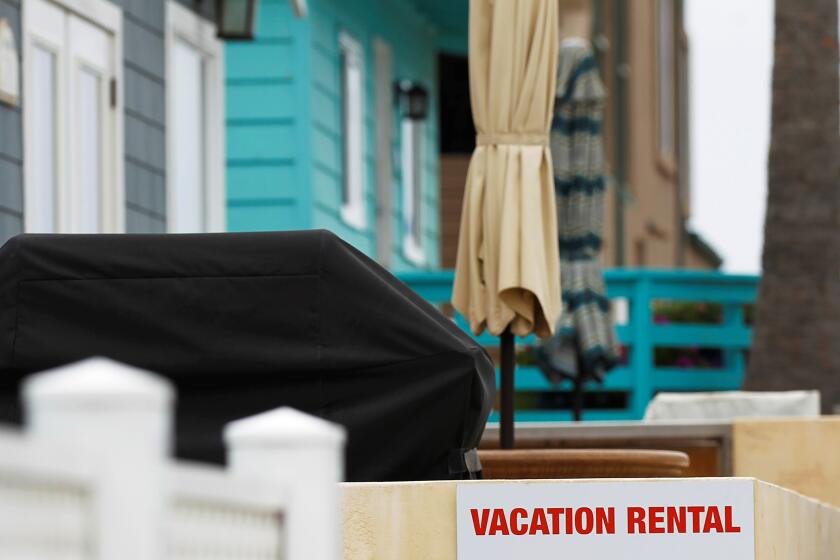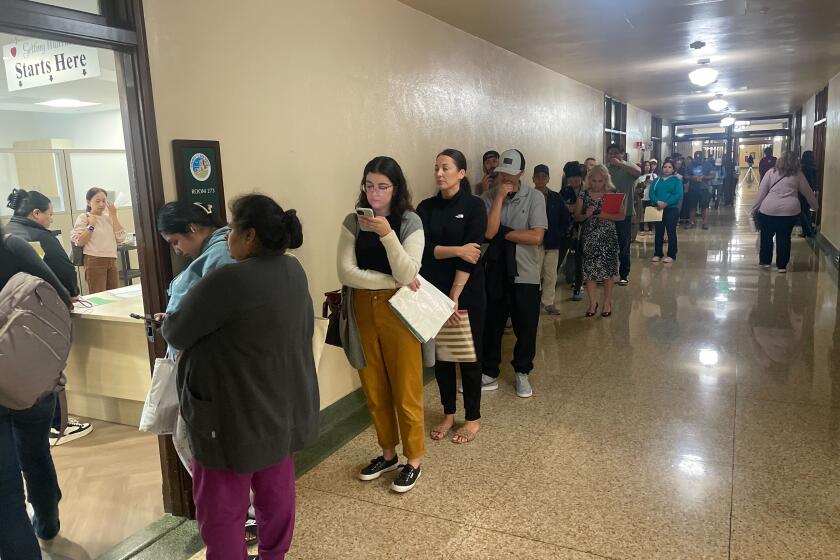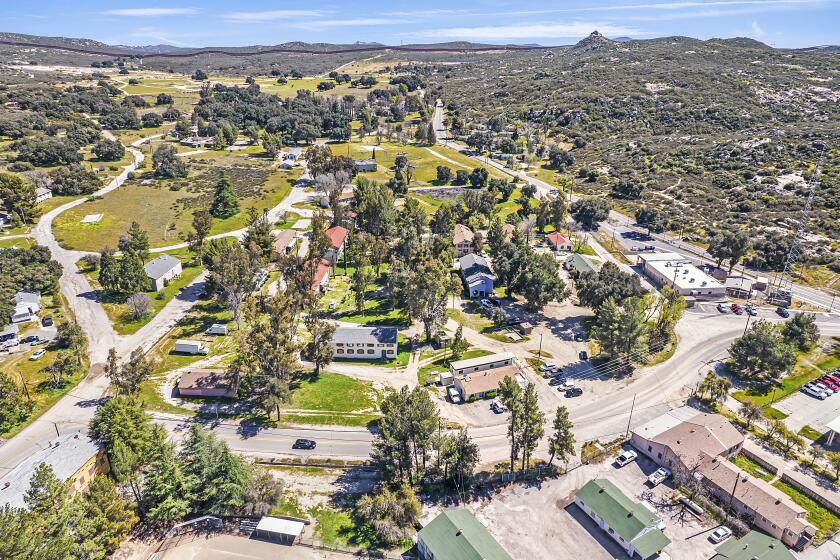Should La Jolla become its own city?

San Diego business leaders and economists consider the economic and housing issues if La Jolla was its own city
There is a new movement for La Jolla to become its own city, no longer just a neighborhood in San Diego, which could create economic and housing opportunities or problems.
Leaders in the effort to secede say San Diego has ignored decaying infrastructure and shifted much of its funding away from La Jolla in favor of low-income areas. Organizers say some streetlights in La Jolla Shores have been out for two years with no fix in sight and major streets are riddled with potholes. Leaders say taking expensive infrastructure improvements away from San Diego could be a help to the city as it can focus on other areas.
It could also include some headaches for La Jolla. While it might avoid San Diego’s recent efforts to upzone single-family areas, it also likely will be on the hook for more low-income housing required by the state. As part of San Diego, much of the subsidized housing requirements are handled by building in downtown, not in affluent La Jolla. Coastal cities, from Del Mar to Huntington Beach, have struggled to find places to put affordable housing.
More of an issue for San Diego: Previous studies have shown it gets more tax revenue from La Jolla than it spends there.
Q: Should La Jolla become its own city?
James Hamilton, UC San Diego
YES: John Locke was right on target in 1689: the core requirement for legitimate government is consent of the governed. If residents feel that the city is not serving their needs or is imposing unfair burdens on their community, they should not be forced to stay. Nevertheless, I will be saddened if it comes to this. I would prefer to see a spirit of compromise by city leaders to make every effort to serve the entire community.
Austin Neudecker, Weave Growth
Not participating this week.
Chris Van Gorder, Scripps Health
NO: There is virtually no chance the rest of the city of San Diego will vote approval for La Jolla to secede even if a majority of La Jolla residents approved the formation of an independent city. But I can understand the frustration La Jolla residents have in not receiving direct value from their local taxes. Equity in both directions — local and citywide — should be considered by the city council when they spend tax money.
Norm Miller, University of San Diego
YES: It seems that La Jolla is losing out to a policy of fiscal redistribution so becoming an independent city would allow for more self-determination on local priorities. At the same time, it is likely to be more expensive to run independent police, fire and other services so local tax increases are likely. Still, the benefit-to-cost ratio is net positive if it means better services and maintenance of La Jolla infrastructure.
Jamie Moraga, Franklin Revere
YES: If La Jolla is giving San Diego more than it receives and desires to incorporate, then they should explore that option. Like other coastal cities including Del Mar, Encinitas, and Carlsbad, La Jolla would be responsible for its own city government and infrastructure (including fire, water, law enforcement, community development, and wastewater) among other city services. If the benefits outweigh the costs and they can get the support needed to self-govern, then it’s something they should pursue.
David Ely, San Diego State University
NO: Final judgment will need to wait until a formal proposal becomes available. However, it seems unlikely that a majority of voters in the city of San Diego would vote to approve the secession of a wealthy neighborhood like La Jolla. Concern that the city of San Diego’s fiscal condition will deteriorate with the loss of tax revenue will raise opposition to a succession proposal.
Ray Major, SANDAG
Not participating this week.
Caroline Freund, UC San Diego School of Global Policy and Strategy
NO: To prosper as a region we need to share resources. If that means La Jolla subsidizes poorer parts of San Diego, so be it. Large existing disparities in housing, education, and infrastructure would be even wider if wealthy neighborhoods secede to put their own wants first. That said, the threat of secession can be a useful tool to ensure La Jolla’s needs are not overlooked in the push for greater equity.
Haney Hong, San Diego County Taxpayers Assoc.
Not participating this week.
Kelly Cunningham, San Diego Institute for Economic Research
YES: Some may be surprised La Jolla is not already its own city, which has been contemplated for many decades. La Jolla should have self-determination and responsibility, including recognizing all considerations of governing oneself (such as Del Mar). Although including some of the region’s highest property values, relatively little retail sales tax revenue exists within the area, an important source for municipal government funding. (La Jolla Village and UTC malls are not currently within existing boundaries.)
Lynn Reaser, economist
NO: Although independence has a lot of appeal, its reality may be questionable. La Jolla would then have to compensate the city for lost revenues. It would have to fund everything from sanitation to police and fire. Meeting the state’s low-income requirements will be exceedingly difficult given the high price of housing and Coastal Commission requirements.
Phil Blair, Manpower
NO: But it is certainly should be the residents’ option. Cities should regularly analyze their options of downsizing, or more importantly, merging to create cost savings in areas where size matters. Do we really need 18 cities in the county of San Diego?
Gary London, London Moeder Advisors
NO: I am sympathetic to complaints cited by secession promoters. But it will be a challenge to make a strong fiscal case for secession. I also see this as essentially an anti-housing movement. Certainly, the politics, particularly a citywide vote to affirm, will be very challenging. Perhaps a better approach would be to create a special assessment, or business improvement district, to raise funds to address the capital improvement and operating deficiencies that they cite.
Alan Gin, University of San Diego
Not participating this week.
Bob Rauch, R.A. Rauch & Associates
Not participating this week.
Kirti Gupta, Qualcomm
Not participating this week.
Have an idea for an EconoMeter question? Email me at phillip.molnar@sduniontribune.com. Follow me on Twitter: @PhillipMolnar
Get U-T Business in your inbox on Mondays
Get ready for your week with the week’s top business stories from San Diego and California, in your inbox Monday mornings.
You may occasionally receive promotional content from the San Diego Union-Tribune.










